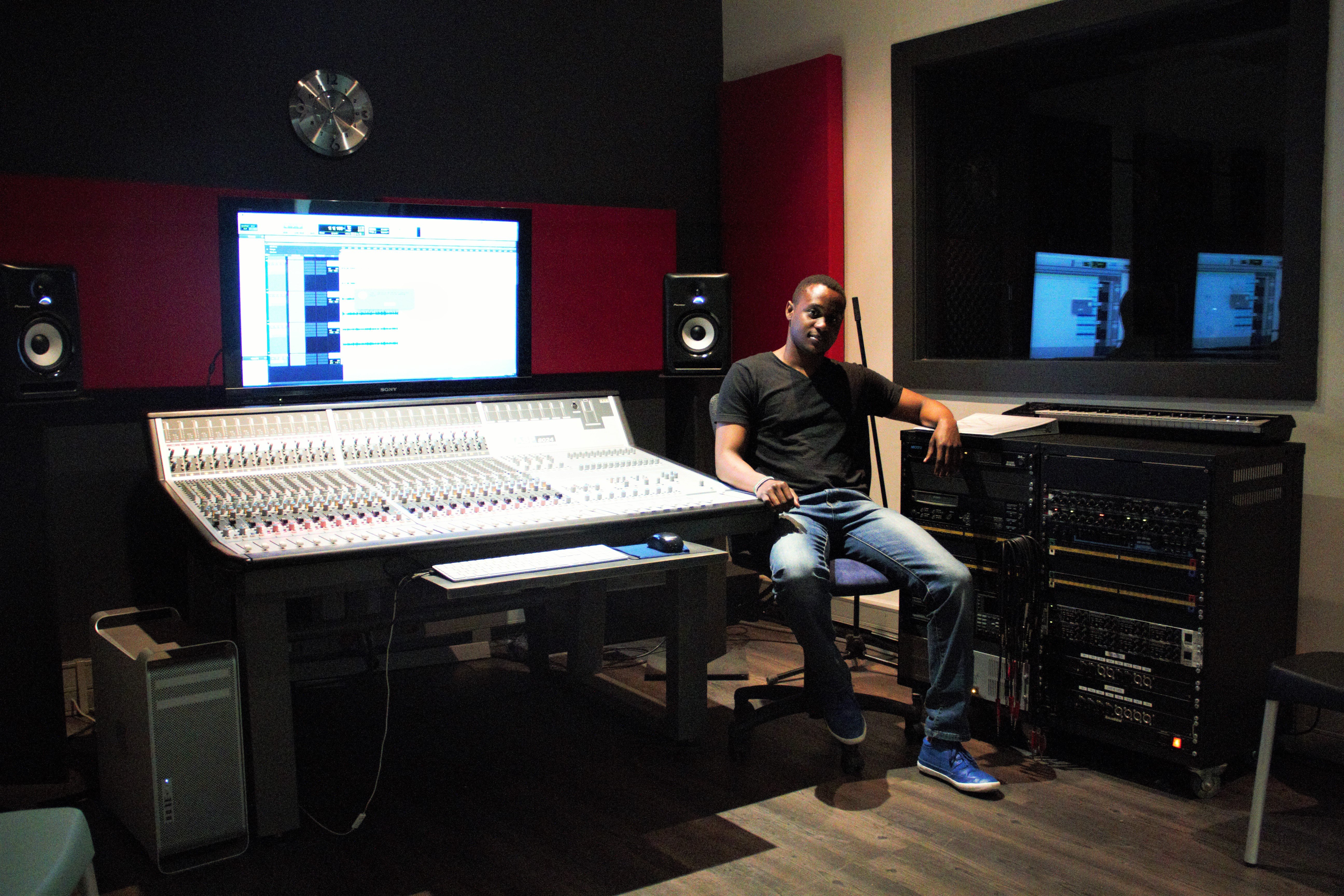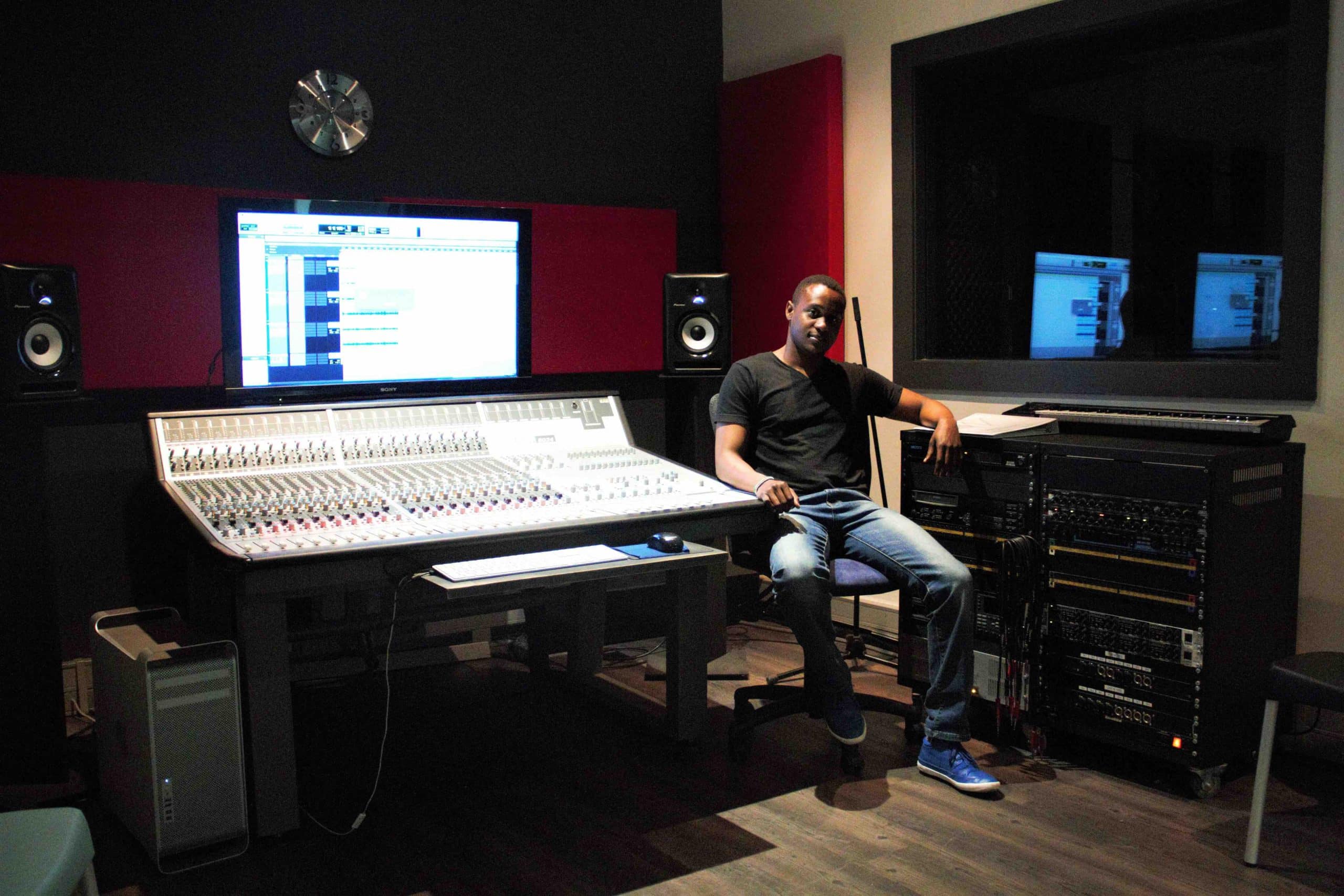What Does a Sound Engineer Do?

Juma Tayari – Core Faculty Sound Engineering
We always get asked, what does a sound engineer do? Who is a sound engineer? We decided to answer these questions and many more by talking to Juma Tayari, a Sound Engineer, CEO at Tayari Soniq Solutions & Core Faculty at ADMI’s Sound Engineering Department.
Here are the insights that he shared about this exciting industry.
There are various fields that one can venture into. You will find a location sound engineer on a film set, a live sound technician mixing in a concert, an audio mixer in a TV studio, a recording and mixing engineer in a music studio, a sound designer in a film production, and an acoustics engineer designing studios.” While these career paths are mentioned, it is important to note that there are even more opportunities available for those with an audio degree.
Here are a few additional career paths that one can pursue:
1. Live Audio Engineer: This career entails working in music venues, ensuring that live performances sound their best and recording live productions to capture the energy and atmosphere of the event.
2. Audio Broadcast Engineer: These experts play a crucial role in maintaining the electrical equipment used for radio programs, television broadcasts, concerts, and other media programs, ensuring optimal audio quality for listeners and viewers.
3. Game and Audio Design Engineer: In the gaming industry, audio design engineers are responsible for creating immersive soundscapes, including background music, sound effects, and various audio elements that enhance the gaming experience.
4. Audio Production Assistant: As a production assistant, you would be the backbone of a recording session, responsible for coordinating and facilitating communication between all parties involved in the project, ensuring a smooth workflow and successful outcome.
5. Mastering Engineer: A mastering engineer possesses the skills to refine and polish recordings, applying various techniques to optimize the sound quality, dynamics, and overall balance of the final product.
6. Music Producer: Working closely with musicians, performers, and audio engineers, music producers collaborate to shape and realize a production’s artistic vision, overseeing the recording process and making creative decisions to achieve the desired sound.
7. Post-Production Expert: Post-production experts are instrumental in the final refinement and polishing of audio in completed projects, ensuring that the sound aligns with the intended artistic direction and technical standards.
8. Sound Designer: In both film and live theatre, sound designers use their expertise to create and enhance the mood, atmosphere, and tone of a scene by strategically incorporating audio elements, such as dialogue, music, and sound effects. These additional career paths showcase the diverse opportunities available to those with an audio degree, spanning various industries and allowing individuals to apply their skills and passion for sound in different creative and technical roles.
What made you pursue a career in sound engineering?
I have always loved live music performances. What fascinated me was how a song sounded so much better when performed live than when played on the radio. I wanted to know how to do that; that is what drove me to pursue a career in the sound engineering field.
Where can someone with an educational background?
There are various fields that one can venture into. You will find a location sound engineer on a film set, a live sound technician mixing in a concert, an audio mixer in a TV studio, a recording and mixing engineer in a music studio, a sound designer in a film production, and an acoustics engineer designing studios.
What is the difference between live and recorded sound? Which is easier to work with?
Recorded music is performed and recorded in the studio, even though there is no audience, the music is captured and mixed to have the perfect sounding record that will be played on radio, TV and sold on various media platforms such as iTunes and physical CDs.
Live music, however, is music that is performed in front of an audience and the performance might be recorded. There is no room for mistakes. The audience expects to hear the same thing they hear while at home; they expect the artist to play the instruments and sing as they did in the studio. The engineer has to make them sound as good as they did on the CD or the radio, if not better.
What are some tips that you have for individuals looking to join the industry?
One, this is a passion-driven career that requires a lot of discipline, treat every gig with the utmost professionalism. Two, always trust your instincts.
What goes into composing music for a movie? How much contact does one normally have with the set?
To compose music for a movie or anything really, you must be inspired. Watch the video, understand the story then think of ways you can use music to drive the emotions. Once you get the general feel of the movie, commence with the writing and see how well it blends with the movie.
What are your thoughts on the commercial viability of audio engineering?
There exists a huge demand for well-trained audio engineers. For instance, with the digital migration, the number of local TV stations has risen from a paltry 3 to over 40 stations. These TV stations need acoustic engineers to design the studios and audio mixers to make sure that they are broadcasting quality audio at the required levels. This is a practical profession and I am looking forward to seeing the industry grow and match international levels.
What makes it different about learning at ADMI?
When compared to other sound engineering schools, ADMI stands out. ADMI students learn using industry-standard equipment and software, this prepares them to join the industry. In addition to this, the students are always involved in various projects whereby they get the opportunity to gain practical skills before they graduate.
What would you tell someone who has not yet made up their mind?
This is a course that equips you with the technical and creative skills to pursue your dream in the industry as a sound technician. You will learn the fundamentals but in order for you to become excellent, you will need to do the practice. This will set you apart from your peers. Practice!
What are your software preferences?
Pro tools and logic.
Does this sound like what you are passionate about? Join our sound engineering class today.

